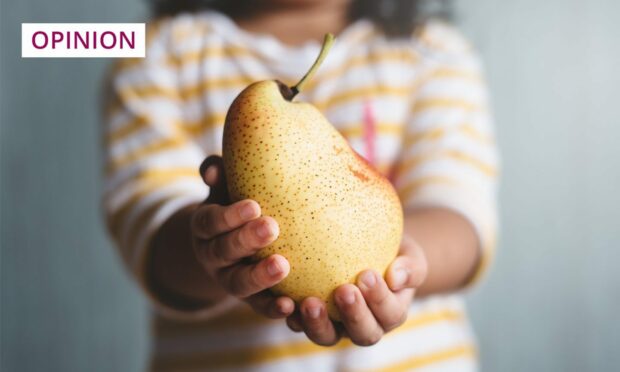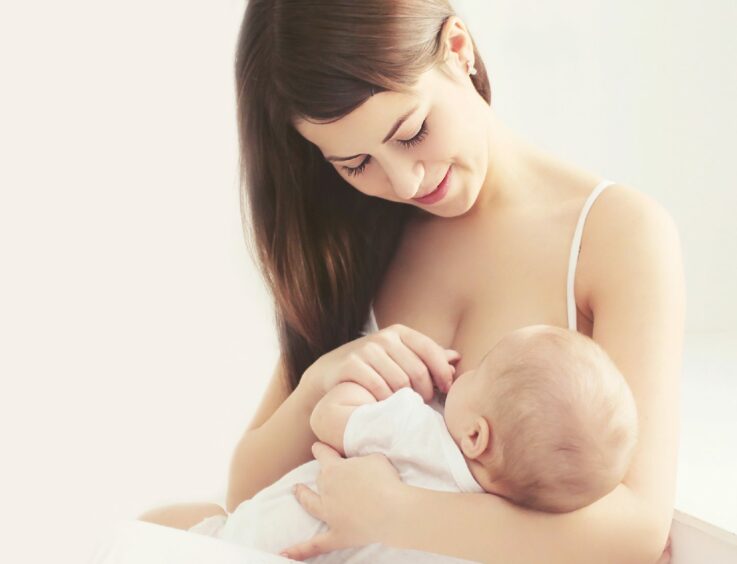Mum guilt is inescapable but whether you have a career or stay at home, chose to breastfeed or bottlefeed – there is more than one way to be a good mother, writes Lindsay Razaq.
“Yes!” comes the resounding cry from the dinner table. “Look, mummy – I was right!”
Startled, I rush over to my five-year-old daughter, Maya, to find her holding a small, brown twig.
There’s a smile spread across her cheeky face as she lifts her palm proudly towards me.
“What were you right about?” I ask, a little confused.
The “pear stalk” she tells me – and then – to my absolute horror – the penny drops.
For more than a month, she’s been complaining that the woody interloper remained stuck up her nostril following some nasal-exploration-gone-wrong on Christmas Day.
But all I’d done – after an initial panic – was check the fruit cores in question for missing pieces and shone a phone torch up her nose before ultimately discounting her tale of woe.
I’m the one with egg – or perhaps pear – on my face now though as I process the absurd spectacle of Maya propelling the offending matter through the air with an almighty sneeze. Apologies if you are reading this at breakfast.
Overriding feeling of guilt as a mum
I can’t help but giggle at Maya’s evident excitement and triumphant smugness at being reunited with the pear stalk under such dramatic circumstances.
I’m also ashamed for not believing her, however.
As usual, my overriding feeling is guilt.
Since becoming a mother, I’ve learned this is inescapable and I accept that there will always be moments when I don’t quite feel enough. That’s what it is to be human. Then there’s my tendency to heap pressure on myself.
But it bothers me – and I know from conversations with others I’m not alone in this – that I feel compelled to justify making time for me or offloading even the smallest of tasks, as though this somehow equates to a failure on my part to fulfil my responsibilities based on society’s view of motherhood.

We seem to subscribe to the notion that unless you are a martyr, totally shattered and worn down to a thread, that if you aren’t putting yourself last all the time, then you aren’t a good mum.
The cruel and repeated shaming of Meghan Markle for her parenting, such as the reports – subsequently corrected by Serena Williams – that she left baby Archie aged four months to travel to the US Open final, is a case in point. A new father would never have been demonised in the same way.
Women don’t lose their ambiton when baby arrives
Speculation in an online article that Kate Forbes would not have aspirations to become Scotland’s next first minister because she is on maternity leave is another pertinent example.
As Joeli Brearley, founder of campaign group Pregnant then Screwed, warned, we must “stop assuming that women lose their ambition when they have a baby”.
Such attitudes lay bare this ingrained belief – however far we claim we’ve come – that a new mum, or mums of young children, should be too preoccupied with motherhood to be considering anything else.
And indeed, sadly, in many cases, prohibitive childcare costs do mean that one parent is forced to curtail or – at the very least – press pause on a successful career with possibly lasting financial and personal repercussions.
I also think it’s worth talking about breastfeeding in this context.
Not once during my time in hospital after Maya was born did anyone actually ask me about my intentions – it was simply assumed I’d be trying her on the boob.
We need ditch mum guilt and stereotype of the ideal mother
I recall too feeling bullied by a belligerent campaigner, with an unhealthy interest in my nipples (and who – it turns out – didn’t even work there), intent on portraying the long-term exclusive breastfeeder – the drained but worthy nurturer – as some kind of ultimate mother figure, the implication being that those who can’t or actively decide not to are less maternal.
We all seem insistent as well – and I include myself here – on asking new mums whether they are breastfeeding when it’s nobody’s business but theirs. Even posing the question implies that they should be.
Of course, everyone has to make sacrifices at one stage or another.
Life is about compromise, it’s about give and take, and putting our children, putting others, first, is clearly something to be encouraged. Provided, that is, we aren’t doing it to prove our own superiority or to remind our kids just how much we gave up to raise them with potentially damaging consequences.
But we need to stop idealising the Mother Mary stereotype that so many of us don’t fit neatly into, don’t want to fit into.
Rather, we must empower women through systemic changes, such as more effective shared parental leave policy, to make informed choices that work best for them and their families without fear of being dubbed inadequate or unmotherly.
It’s high time we acknowledged that there are many ways to be a good mum.
Lindsay Razaq is a journalist and former P&J Westminster political correspondent who now combines freelance writing with being a first-time mum


Conversation